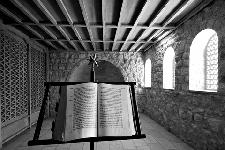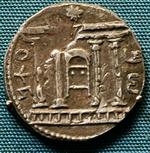The King At The Door
Kings do not touch doors. They do not know that pleasure of pushing open in front of you, slowly or brusquely, one of those big familiar rectangular panels, and turning back to close it in its place again – holding a door in your arms....






